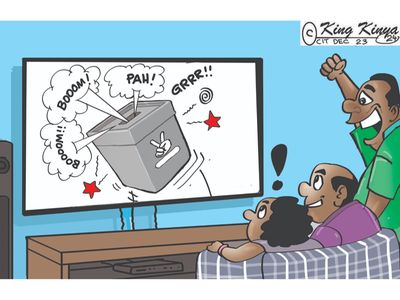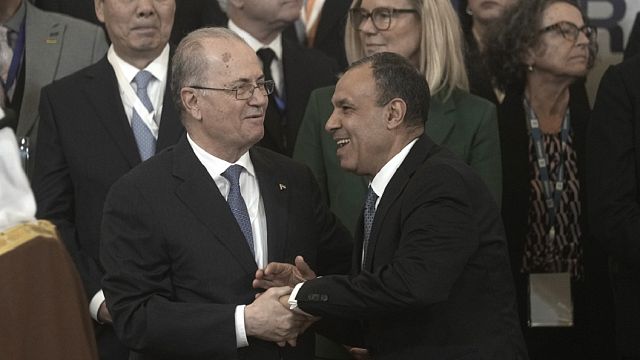…As anxiety swells over NCA’s internet disruptions
The Media Foundation for West Africa (MFWA), has called on the Electoral Commission (EC) to reconsider and reverse its decision to limit media access to collation centres during the 2024 elections.
Sulemana Braimah, Executive Director at MFWA, yesterday Tuesday, November 26, in an interview with Channel One TV, expressed shock at the EC’s directive and stressed the need for the EC to reverse the directive.
At the regional collation centres, the EC stated that access would be granted to 12 media houses, comprising five TV stations with two personnel and seven radio stations with one representative each.
The EC instructed its regional directors, to limit media access to collation centres during the 2024 general election, emphasizing the need for a secure and efficient collation process.
In a memo to its regional directors, the EC, outlined that only eight media houses would be accredited at each constituency collation centre.
This allocation, includes three TV stations with two personnel per station and five radio stations with one representative each.
The restriction has completely blacked out newspapers. The directive comes as a group called “KeepItOn”, a coalition of over 300 Civil Society Organisations (CSOs) across the world, has cautioned the government of Ghana against shutting down access to the internet as the country nears the 2024 general elections.Reading the coalition’s open letter to President Nana Addo Dankwa Akufo-Addo and other stakeholders in the election, at a press conference in Accra yesterday, Tuesday, November 26, 2024, the Campaign Manager of KeepItOn at Access Now, Felicia Anthonia, indicated that there would be no justification for shutting down the internet.
This, follows the EC’s support for the establishment of a national framework to guide the use of social media in the country during national elections.
The National Communication Authority (NCA) has the power to shut down internet services in the country, and many fear Joe Anokye, whose name came up prominently during the 2020 elections, could do this.
Jean Mensa, the Chairperson of the EC, made the call at a seminar on the “Impact of Disinformation on Electoral Integrity, Peace and Security in Africa,” in Accra, on Thursday, October 20.
According to her, such a framework, would help reduce the high rate of mis/disinformation spread during elections, ensure the integrity of the electoral process and protect the democracy, peace and security of the country.
Dr Eric Bossman Asare, Deputy Commissioner of the EC, clarified the decision during an interview on Eyewitness News yesterday, Tuesday, November 26.
He explained that the restrictions are intended to streamline the collation process and ensure smooth operations at both constituency and regional levels, stating that “In the wisdom of the commission, the conclusion was that to create an enabling environment for a smooth collation exercise, let’s restrict the numbers.
“We think at the constituency level, having eight media houses is generally appropriate, and at the regional level, twelve media houses is very much appropriate.”
“We arrived at our conclusion based on our history and the nature of the collation centres. If you are not very careful and you don’t manage the centres very well, you may end up having a lot of challenges to deal with.
“So, the commission believes that this particular arrangement will create a very smooth coalition exercise at the constituency and the regional level.
“We are not only reducing numbers for the media, it is something which cuts across. We are making the point that with the 8 media houses, let us take a constituency like Banda, Hohoe, or Bantama and you have eight media houses, we think they should be enough to be able to send the information,” he stated.
The MFWA, argues that such restrictions could undermine transparency and accountability during the collation process, urging the EC to reconsider its position to uphold the role of the media in ensuring credible elections.
Despite these assurances, the MFWA, argues that such restrictions could hinder the media’s ability to effectively cover the election process and ensure accountability.
The foundation, has urged the EC to reconsider its stance and allow broader media access to promote transparency and public trust in the electoral process.
“Since when did media coverage become just radio and television? What about newspapers, what about online publications?
“So, I think this is a very misdirected action and well as they say better late than never. This is something that I think should be reversed,” he stated.
The Campaign Manager of KeepItOn at Access Now, Felicia Anthonia, disclosed that the coalition had noticed a worrying trend of the internet being shut down in some African countries before elections, including Senegal and Mauritania, and prays that the government of Ghana, will not follow suit.
The coalition, therefore, called on President Nana Addo Dankwa Akufo-Addo, to openly assure the people of Ghana that access to the internet in the country will not be interfered with before and during the 2024 polls.
“The undersigned members of the KeepItOn coalition urge the government of Ghana, as well as other relevant actors, to publicly assure the people of Ghana that the Internet, including social media and other communication platforms, will remain open, accessible, inclusive and secure before, during and after the elections.
“We call upon the relevant institutions and authorities to refrain from ordering any disruption of telecommunication services, social media platforms or other digital communication platforms throughout the elections. We urge telecommunications companies and ISPs to implement all necessary measures to provide high-quality, secure, unrestricted and uninterrupted Internet access through the election period and beyond, in line with their quality of service and license conditions,” she read from the letter.
She also called on internet providers in the country to inform the people of Ghana about any potential disruption to the supply of internet.
“And then finally, we urge telecommunications companies and ISPs to inform the people of Ghana of any potential technical disruption during the elections and take all reasonable steps to remedy any such disruptions likely to impact their service quality,” she added.
The KeepItOn Campaign Manager, also noted that their call for the president to give assurance that there would be no disruptions in the supply of internet before, during, or after the election is not to cause fear and panic among Ghanaians.
She said that the calls are legitimate because access to the internet is key to ensuring that Ghanaians are well-informed in the course of the election.
The EC seminar was organized, last year, by the Ministry of Foreign Affairs and Regional Integration in collaboration with the Ministry of Information and the Institute of Democracy and Electoral Assistance (IDEA).
It was attended by members from key public and private institutions, including the judiciary, political parties, civil society organisations, as well as security and political analysts.
Mrs Mensa, said one of the most pressing challenges confronting electoral management bodies was the proliferation of fake news and disinformation campaigns on social media platforms.
“Indeed, the culture of spreading fake news or falsehood is not a new phenomenon but the advent of the internet and social media has allowed it to spread at a faster and more widespread rate, with a damaging consequence to electoral management bodies and elections,” she emphasised.
The EC Commissioner, noted that social media if not properly managed could pose a real threat to elections and destabilise the peace and security of the country. Therefore, the Commission would be happy if a regulation was put in place to manage social media use, especially during elections to check mis/disinformation.
“We, at the Electoral Commission of Ghana, support the development of a framework to guide the use of social media around elections and around the peace and security of our respective countries. “I join my voice to Elon Musk, and I quote him; “there should be regulations on social media to the degree that it negatively affects the public good,” she emphasised.
She, however, assured of the Commission’s commitment to deliver a free and fair general election in 2024. “We have no doubt that, as was the case in 2020, we will carry the citizens along with us and build public trust and confidence in our work, and ultimately maintain the peace and security of our dear nation,” she assured.
The post Media Foundation fights EC’s media restrictions at collation centres appeared first on The Herald ghana.



